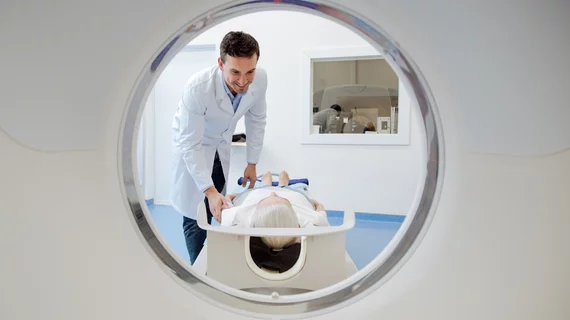FDA issues final guidance for assessing medical device safety, compatibility in MRI rooms
The U.S. Food & Drug Administration on Wednesday issued final guidance for assessing the safety and compatibility of medical devices within magnetic resonance imaging environments.
The FDA said their recommendations apply to implanted devices, those fastened or carried by patients (external insulin pumps, pulse oximeter, etc.), and devices that may enter MRI rooms during clinical care, among many others. Its guidance does not, however, touch on MRI machines or components.
“Ensuring safety and effectiveness for implants and other medical devices anticipated to enter the MR environment should be an integral part of medical device risk management,” the administration said in its May 19 statement.
Additionally, the 32-page document outlines safety labeling information that should be included in premarket submissions along with key information to include in test report summaries and completed reports.
“Appropriate testing and analyses, scientific rationale, and labeling, such as well-supported MR Conditional labeling…form the basis of adequate mitigations for the unique safety hazards of the MR environment,” the FDA said.
Over the past few years, there have been a handful of non-medical devices to draw MRI warnings from imaging experts.
Most recently, the FDA put out a notice cautioning patients to leave behind their face masks with metal parts before entering MRI rooms. The warning came after an individual reported facial burns consistent with the shape of a mask during their exam. Radiologists have also sounded the alarm against wearing magnetic eyelashes during such scans, which can ruin imaging quality and put patients at risk.
You can read the entire “Testing and Labeling Medical Devices for Safety in the Magnetic Resonance Environment” statement from the FDA here.

